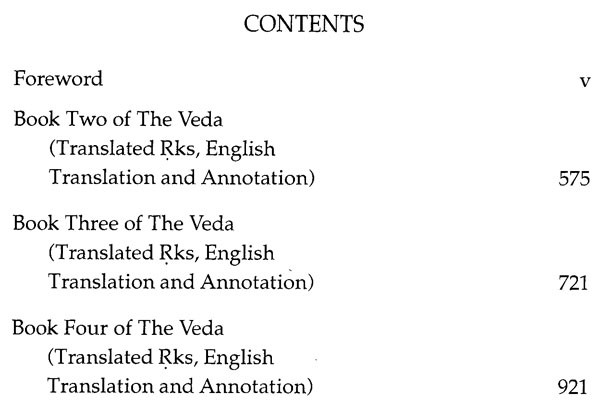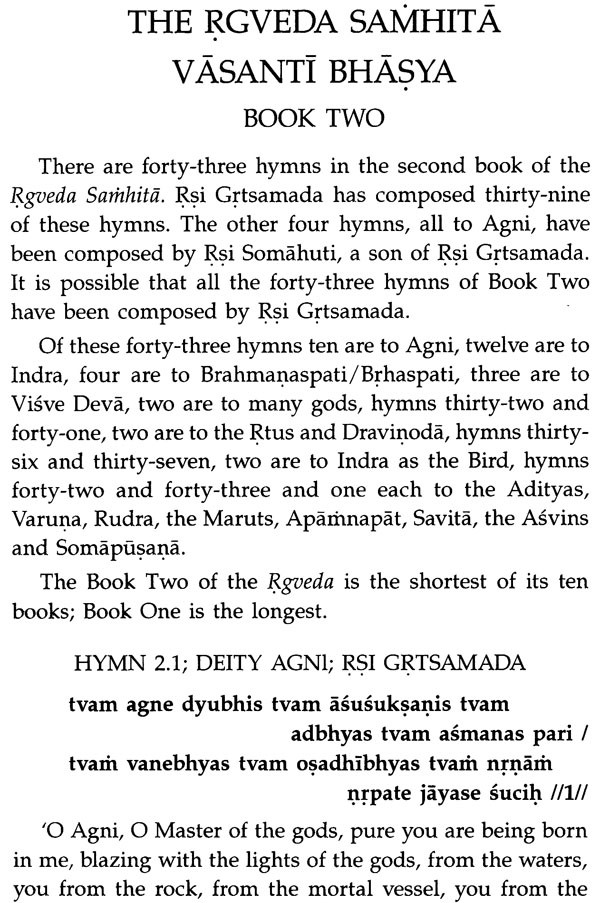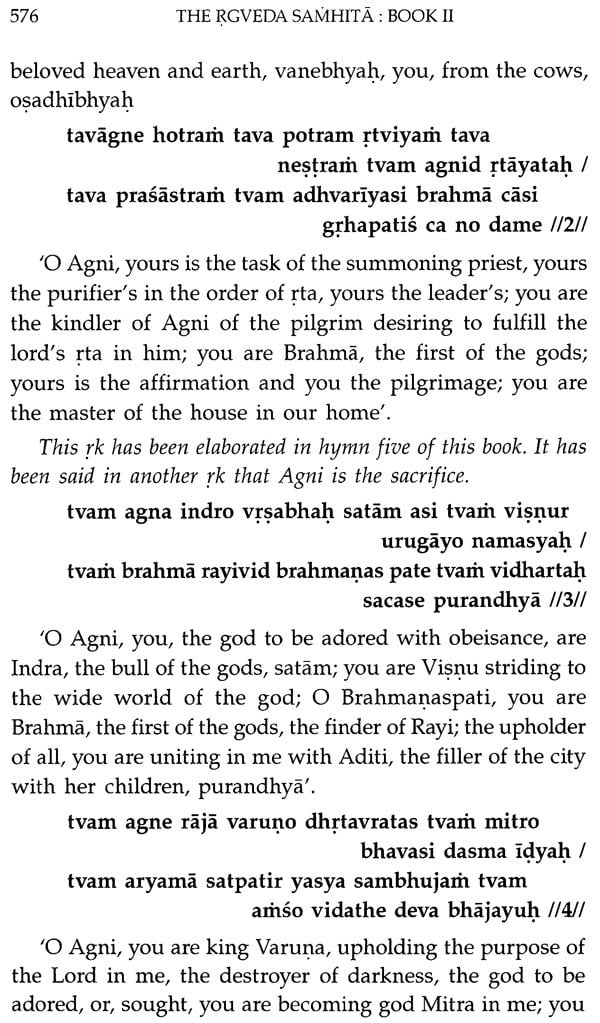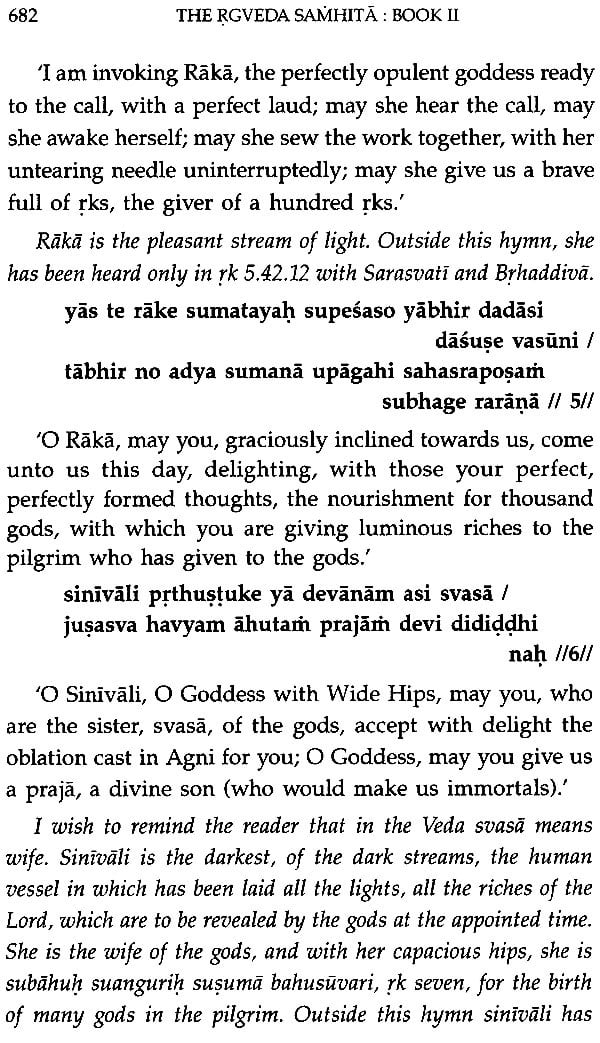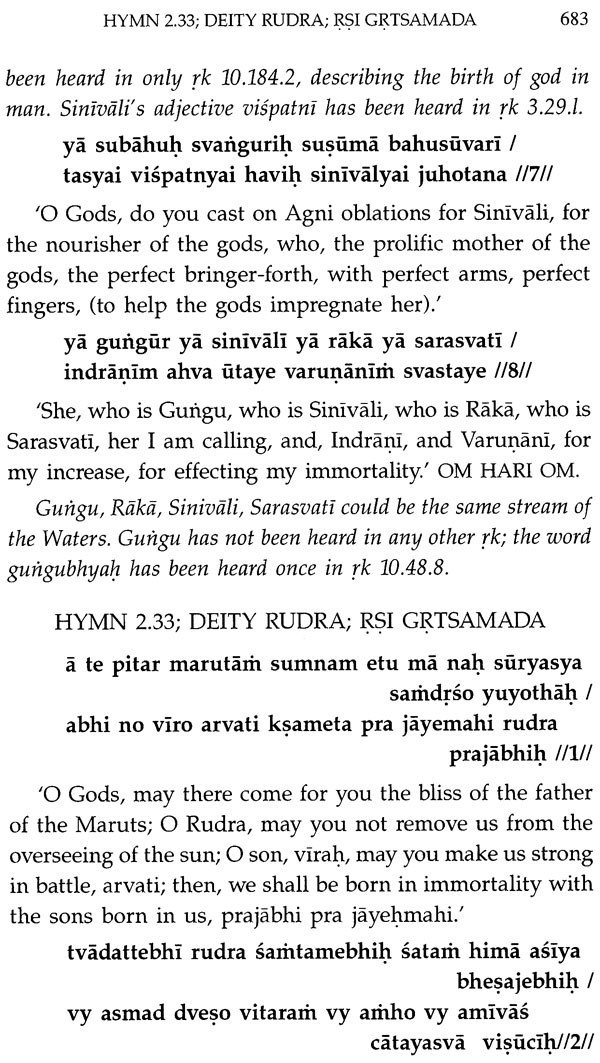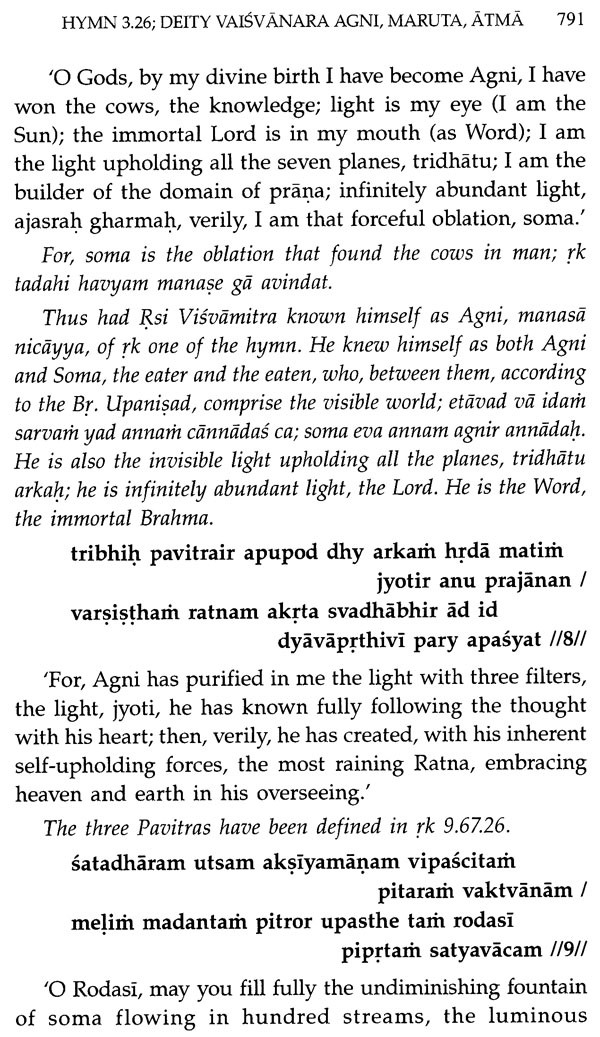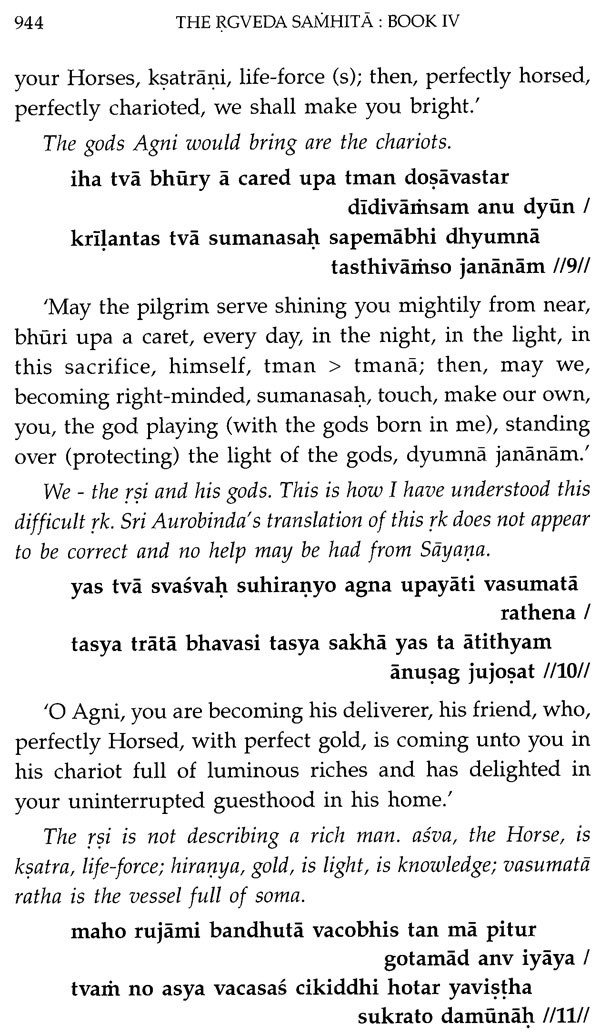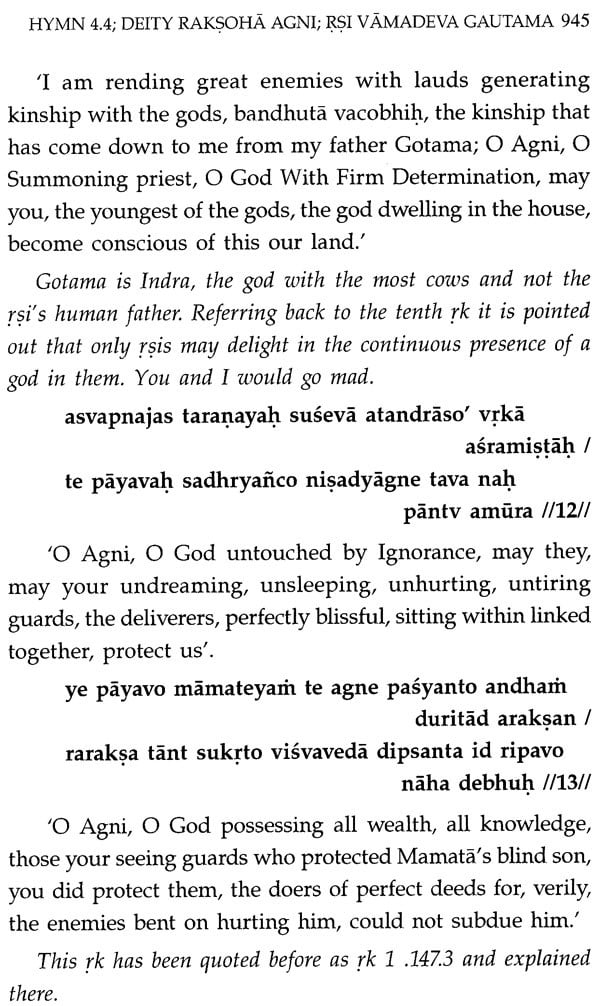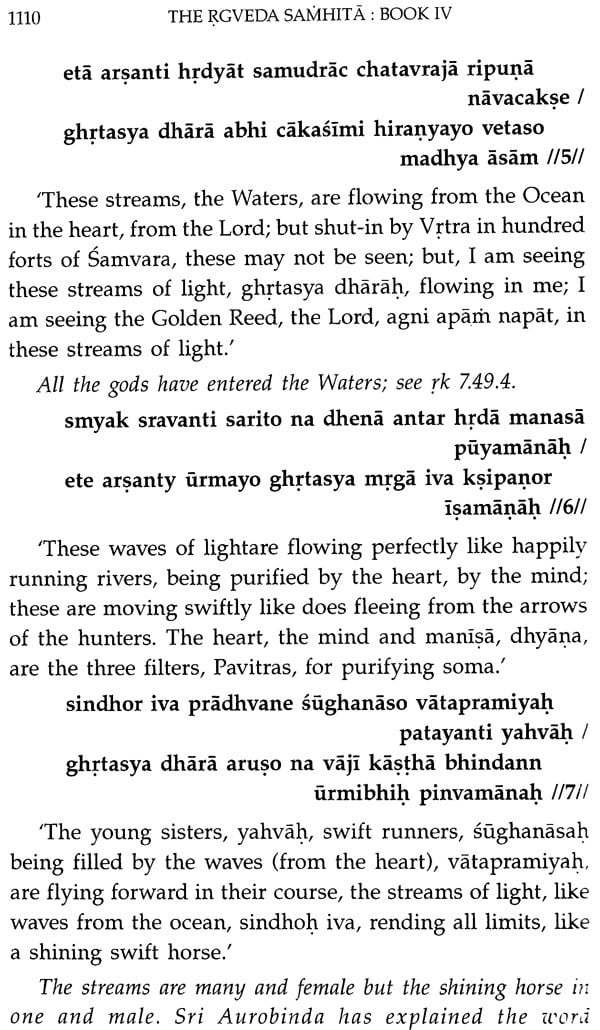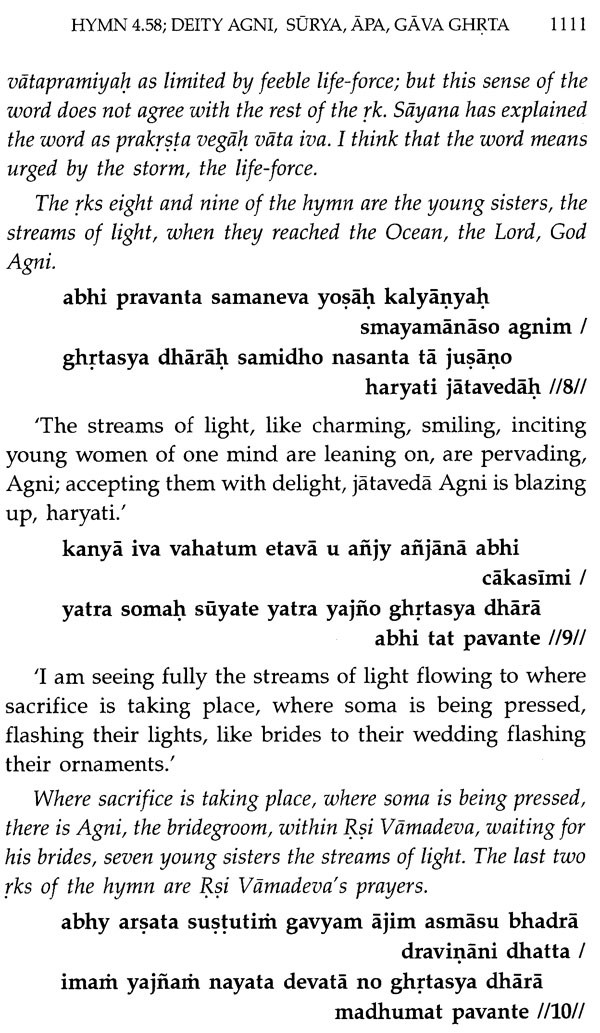
The Rgveda Samhita: Volume II (With Transliteration and Translation)
Book Specification
| Item Code: | NBZ888 |
| Author: | Basanta Kumar Ganguly |
| Publisher: | THE ASIATIC SOCIETY |
| Language: | English |
| Edition: | 2020 |
| ISBN: | 9788194692300 |
| Pages: | 538 |
| Cover: | HARDCOVER |
| Other Details | 9.00 X 6.00 inches |
| Weight | 790 gm |
Book Description
Basanta Kumar Ganguly has translated and annotated the entire Rgveda in the light of his own mature experience. He has evinced considerable originality by differing from the traditional commentary of Warm. What makes the work unique is that it contains the huge Rgveda in Roman transliteration. This is particularly attractive to foreign scholars.
This is a work of author's Herculean effort to grasp the real sense of the rks and to take an integral view of the entire Rgveda where the rsis recorded their experiences of the pilgrimages from mortality to immortality.
In the Introductory part of this work printed in Volume One, which is a real treasure, he interprets Rgveda thematically in his expressive and lucid language and differs greatly from the annotations of the traditional commentators as well as the European scholars which opens a new threshold to the readers of philosophy and Indian antiquity.
Author's explanatory notes emerged from his unique philosophical concept on the mystical and abstruse words. The elucidation of Vedic symbolism will benefit a modern reader endowed with a rational bent of mind to be adequately equipped for understanding the hymns as well as to have a glimpse of the radiance of Vedic scripture.
He passed away in 1999 leaving this only book where he remains and will remain ever present with all his outstanding individuality.
"I wish to share my discovery", as the translator writes, "with my readers to spare them the frustration, the time, the effort, the expense I had to undergo to satisfy my birth right to a reasonably correct interpretation of the nation's supreme scripture, the supreme heritage. ... I therefore felt that it would be easier for my readers and the book, if ever published, would have a larger circle of readers, if it were written in English and the rks were transliterated. Though the padapatha has been followed in the transliteration of the rks, certain basic rules of writing Sanskrit have been retained so that the rks could still be read as verse." Accordingly he did the same.
The first volume is in demand. This volume, I am sure, would meet the demand of the scholars in the field.
Book's Contents and Sample Pages
